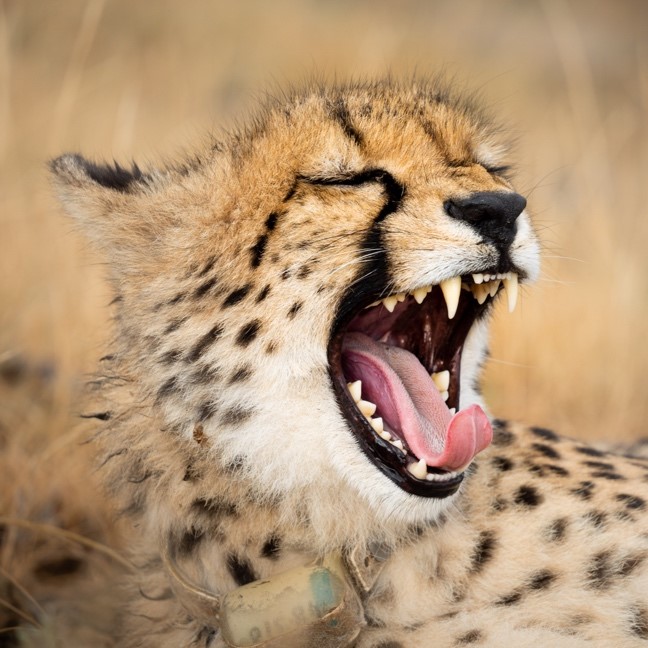Akira's Story
Akira is the granddaughter of a famous cheetah called Sibella. Sibella was viciously attacked by hunting dogs in the North West province after which she underwent a five-hour surgery, then was nursed back to health and then introduced in December 2003 to Samara Private Game Reserve in the Eastern Cape, South Africa. At Samara she went on to produce 19 cubs, from four litters – one of whom was Inara, Akira’s mother.
Akira was born in April 2019, however shortly after her mother sustained a serious injury and so rejected Akira. At the time there was a cheetah family with similarly aged cubs at Kuzuko and our reserve manager, Gerhard de Lange, proposed attempting to bond Akira to the mother. Successfully creating a bond would require all of de Lange’s many years of big cat experience as well as a healthy dose of luck – but if it worked out it would offer Akira the very best chance of a successful like in the wild.
The bonding was indeed a success and Akira went on to learn to hunt with her adopted mother and siblings in one of our purpose-built cheetah wilding areas. At around 18 months old, the cubs and their mother naturally separated and at that time Akira’s adopted family went on to new lives in other reserves placed through the Endangered Wildlife Trust’s Cheetah Metapopulation Project whilst Samara Private Game Reserve kindly donated Akira to Kuzuko.
In March 2021, Akira was released into a separate cheetah area before finally being released into the full game reserve in March 2022. Since then, she has been successfully establishing herself on the reserve and has possibly even been mated by our two recently released cheetah males, Tj and Kirk. With any luck, there will soon be another generation of cheetahs here at Kuzuko.

As well as being a very special cat with a wonderful temperament who is close to our hearts, Akira also epitomises the cheetah conservation work we do at Kuzuko. There are now less than 7,000 cheetahs left in the world and, according to the IUCN that number is still in decline. With the numbers so low, every single cheetah is important. De Lange specialises in finding ways to offer orphans like Akira the best chance of a wild, free and independent life. As well as ensuring the best quality of life for Akira, de Lange’s dedication and unique skillset ensure that cheetahs like Akira can continue to contribute to the next generation.
Cheetahs have lost 90% of their former ranger and outside of protected areas cheetahs often come into conflict with livestock farmers, a conflict that rarely ends well for the cheetah. Private game reserves, like Kuzuko, are an important stronghold for the remaining cheetah population. However, as game reserves are usually isolated from each other and protected by fences, the cheetah cannot move between different populations as they naturally would so the genetic diversity of the wider cheetah population becomes reduced.
Since 2011, the Endangered Wildlife Trust’s Cheetah Metapopulation Project has played a vital role in managing the wider cheetah population in reserves across Southern Africa to ensure the greatest possible genetic diversity and so the best chance of survival for the species. We are very proud to play an active role in the project, helping to place cheetahs with diverse genetics in different reserves and ensuring genetics from cats such as Akira are not lost to the species.


